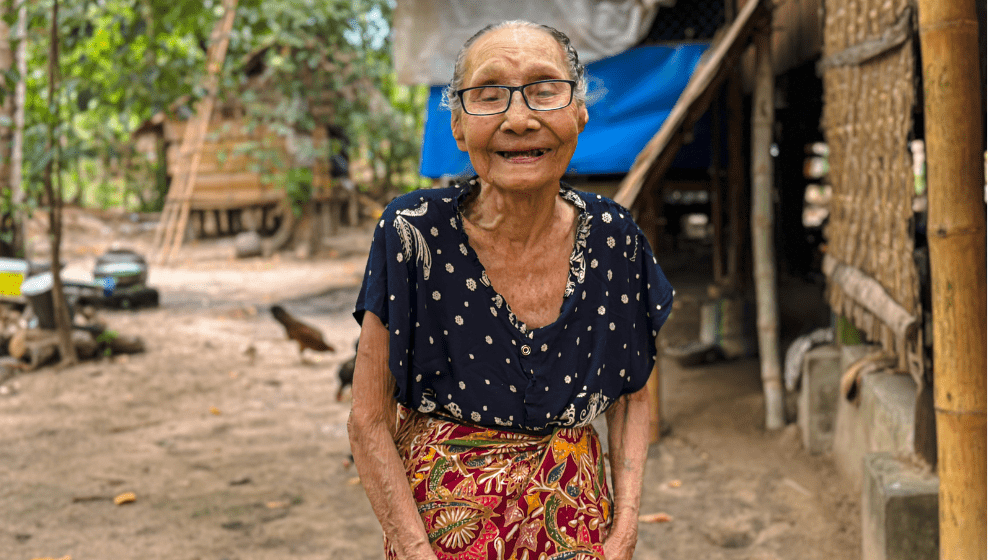Photo Story
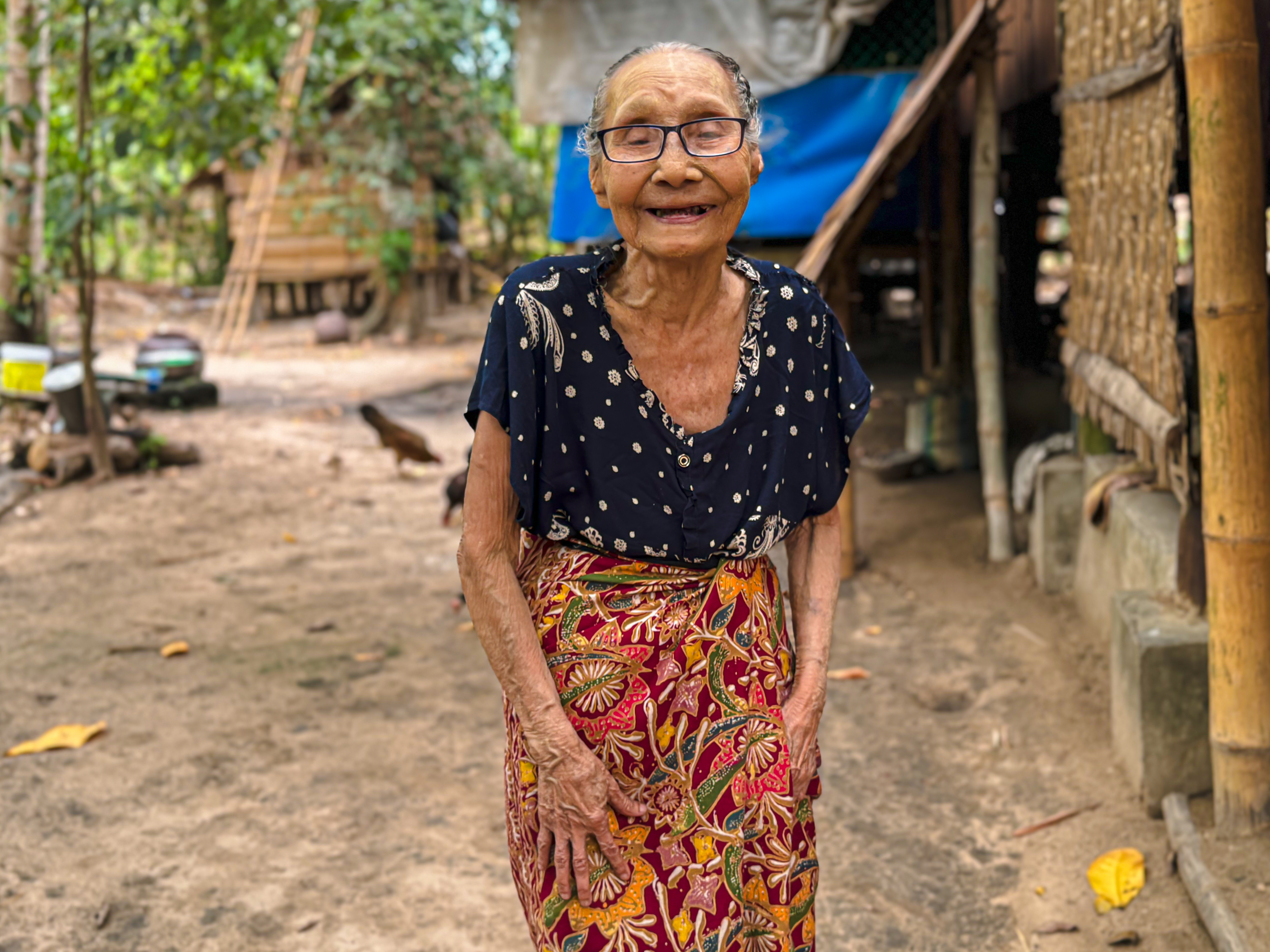
Figure 1: An older woman stands proudly in her community, embodying the resilience and grace that inspire all generations around her. Photo© UNFPA Myanmar
In Myanmar, the COVID-19 pandemic and an ongoing humanitarian crisis have cast long shadows over the lives of people, particularly affecting one of the most vulnerable—the elderly. According to the 2019 Myanmar Inter-censal Survey, the older population was about 5.2 million, comprising 10.1 per cent of the total conventional household population, and this percentage is projected to rise to around 13 million or almost 20% of the total population by 2050. The 2014 Census further revealed that nearly one-quarter of older people in Myanmar have at least one form of disability, and nearly six per cent have a moderate or severe disability. The prevalence of disability increases with age and is more commonly found among women, rural populations, and the poorest older people. This demographic, revered for their wisdom and experience, has found itself facing an array of unprecedented challenges.
The ongoing conflicts in Myanmar have exacerbated the situation of the elderly in Myanmar, intensifying their isolation, anxiety, and vulnerability and leading to increased feelings of insecurity and helplessness. In such times, traditional support structures have often been strained or inaccessible, leaving many elders to navigate these turbulences with limited assistance.
This story explores the resilience of Myanmar's elderly and the community-led response, with the support of UNFPA and the implementing partner working for the elderly population in Myanmar. It illustrates how compassion and support can thrive amidst adversity, providing support to those most in need.
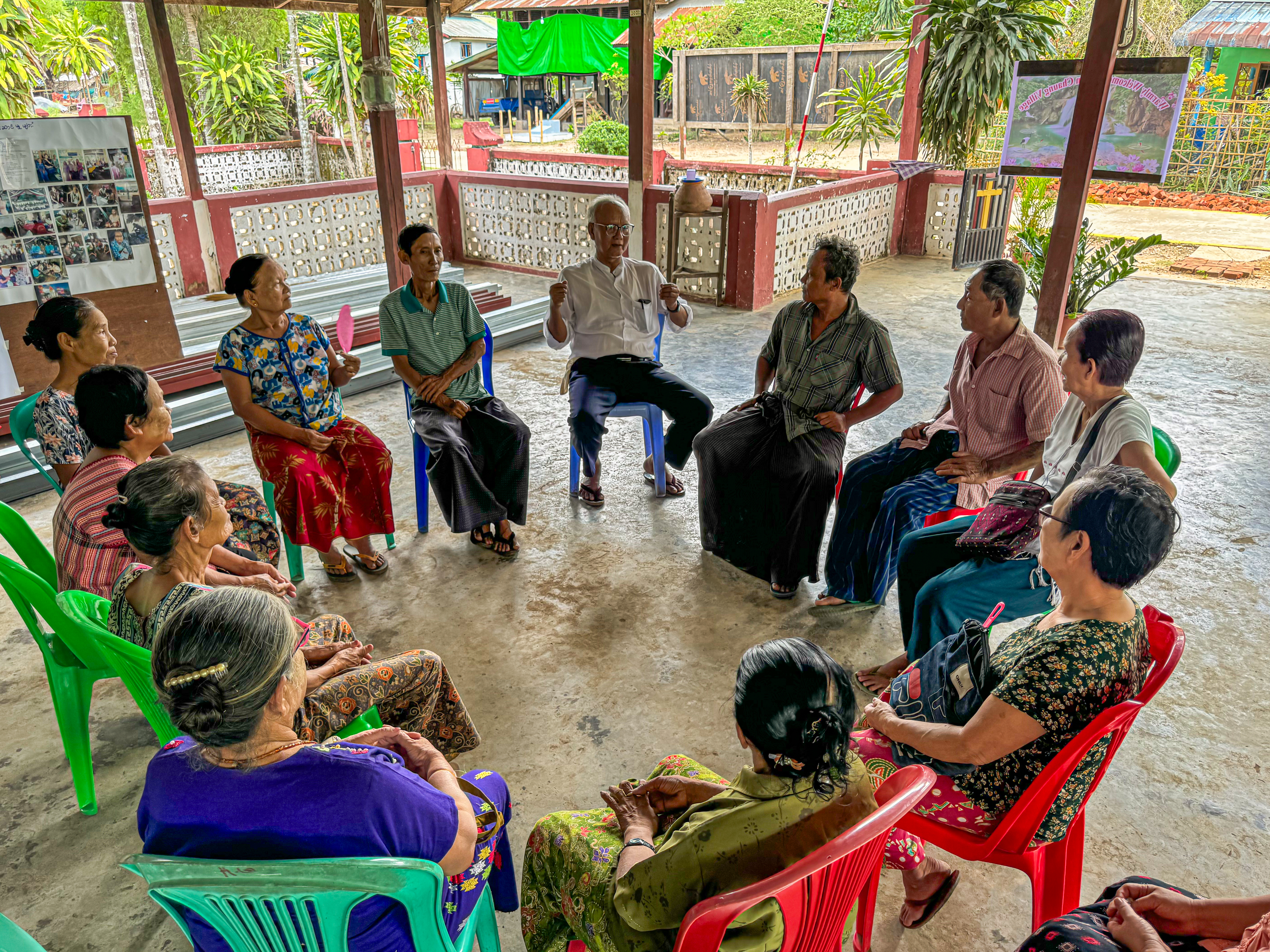
Figure 2: Older people community members and the township network committee come together to share thoughts and feelings, discussing strategies to enhance mental health and psychosocial well-being and ensure essential support. This collaborative effort highlights the community’s dedication to inclusivity and care for its seniors." Photo© UNFPA Myanmar
"The goal of our group is simple but essential: ensuring that every elder in our community feels supported and valued. It helps us identify and address their particular needs efficiently." – Saw La, member of the Township Network Committee, Kan Gyi Daunt Township, Ayeyarwaddy region.
Ever since the first COVID-19 case was reported in Myanmar in 2020, people were experiencing anxiety and uncertainty about the pandemic's effects on their loved ones, especially older people. As one of the agency’s key priorities, UNFPA has made significant contributions to the response to the increasing demand for mental health and psychosocial support (MHPSS) services during the pandemic and ongoing humanitarian crisis.
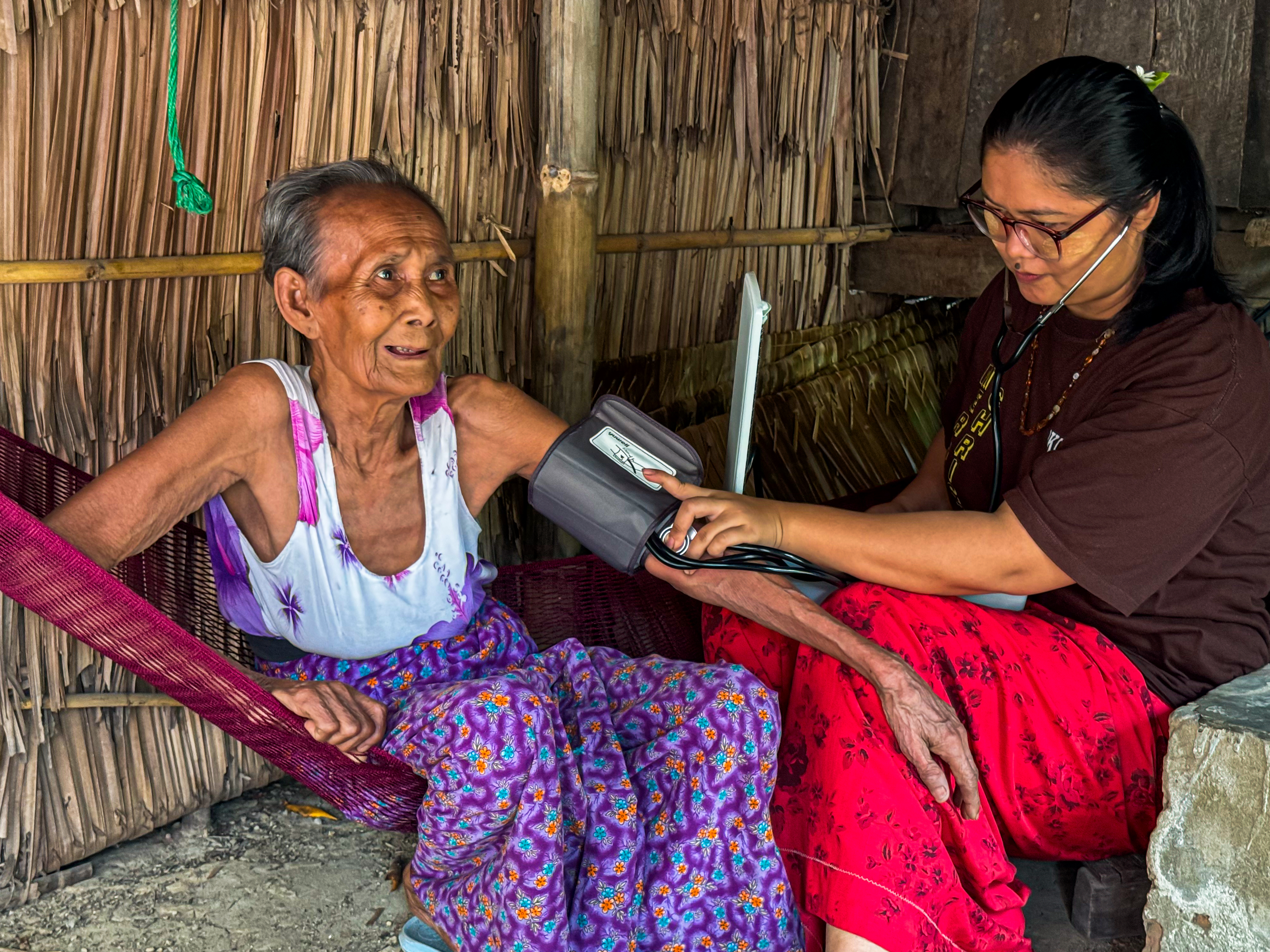
Figure 3: A volunteer visiting an elderly person's home, helping them with a general health check-up Photo© UNFPA Myanmar
UNFPA has enhanced existing platforms, such as the MHPSS Peer Support Networks (PSN), to support self-care initiatives for frontline workers engaged in COVID-19 relief and broader humanitarian efforts. Additionally, the organisation has conducted comprehensive MHPSS training for the partners, including the volunteers working for the elderly population to integrate into the existing home-based care services. This training focused on the "Living with the Times" toolkits, designed for older adults during the COVID-19 pandemic by the Inter-Agency Standing Committee (IASC) Reference Group on Mental Health and Psychosocial Support in Emergency Settings. Over 700 volunteers working with older people were trained by the UNFPA MHPSS Roster Team to implement "Living with the Times" and support older people in the community.
Naw Glory Htoo, a community volunteer, expressed her dedication: "I take great pride in my role as a community volunteer, assisting the elderly in our area. We provide essential healthcare through regular home visits, conduct health checks, and engage in activities to enhance their mental and psychosocial well-being. “Living with the Times” posters are invaluable; they guide older people in recognising the activities they are capable of performing and those they should avoid. With the MHPSS training received from UNFPA, we feel well-prepared and confident in our ability to support them effectively. Older people, like others, experience stress, anxiety, loneliness, and sometimes feeling depressed, especially exacerbated by the ongoing conflict in the country. Without the support of family and community, they are distinctly vulnerable."
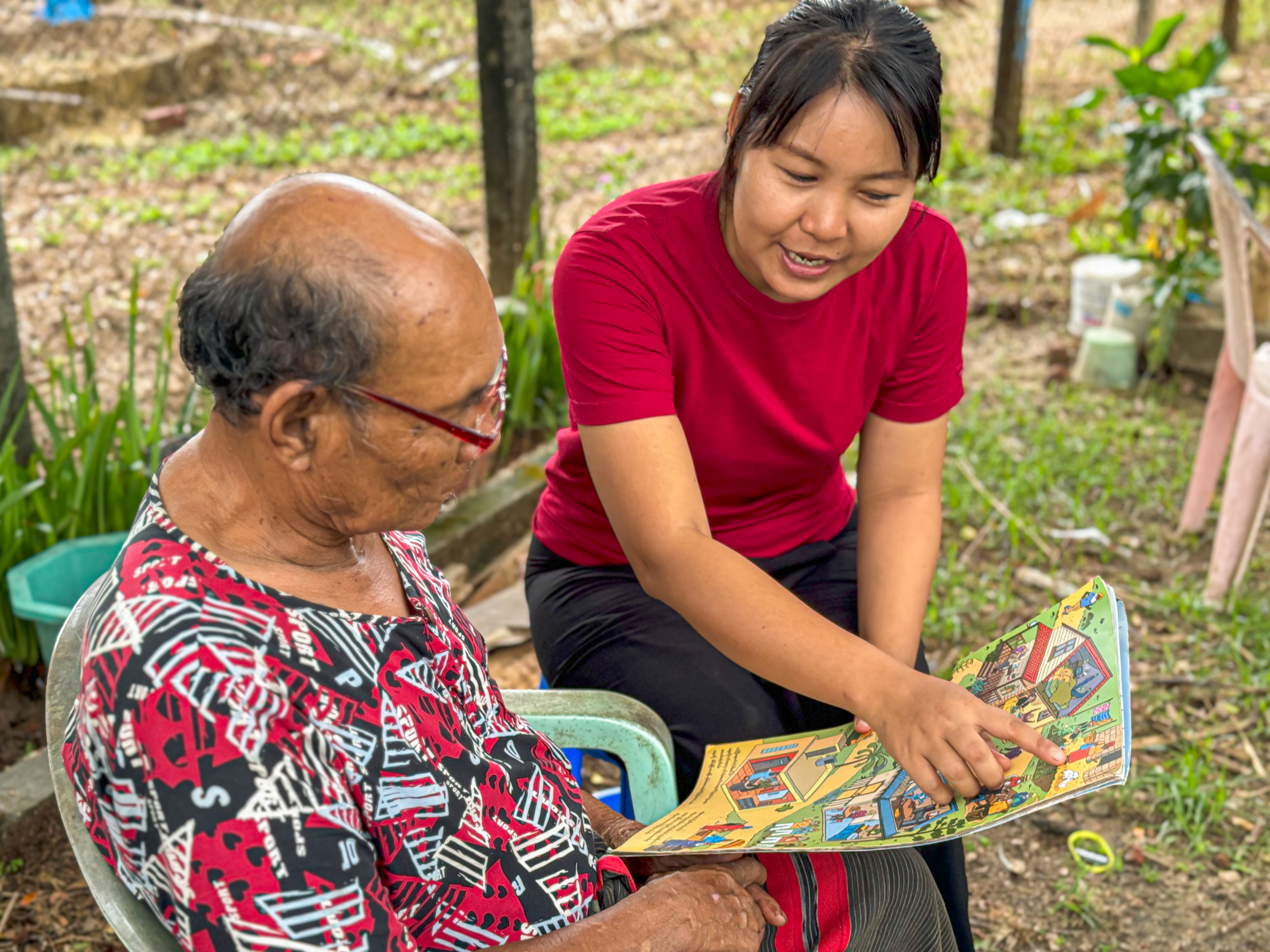
Figure 4: An older person attentively looks at a "Living with the Times" poster, a volunteer pointing at an activity they can perform. Photo© UNFPA Myanmar
“These posters remind me there are so many things I still can do. They motivate me every day to stay active and happy." - Community Elder.
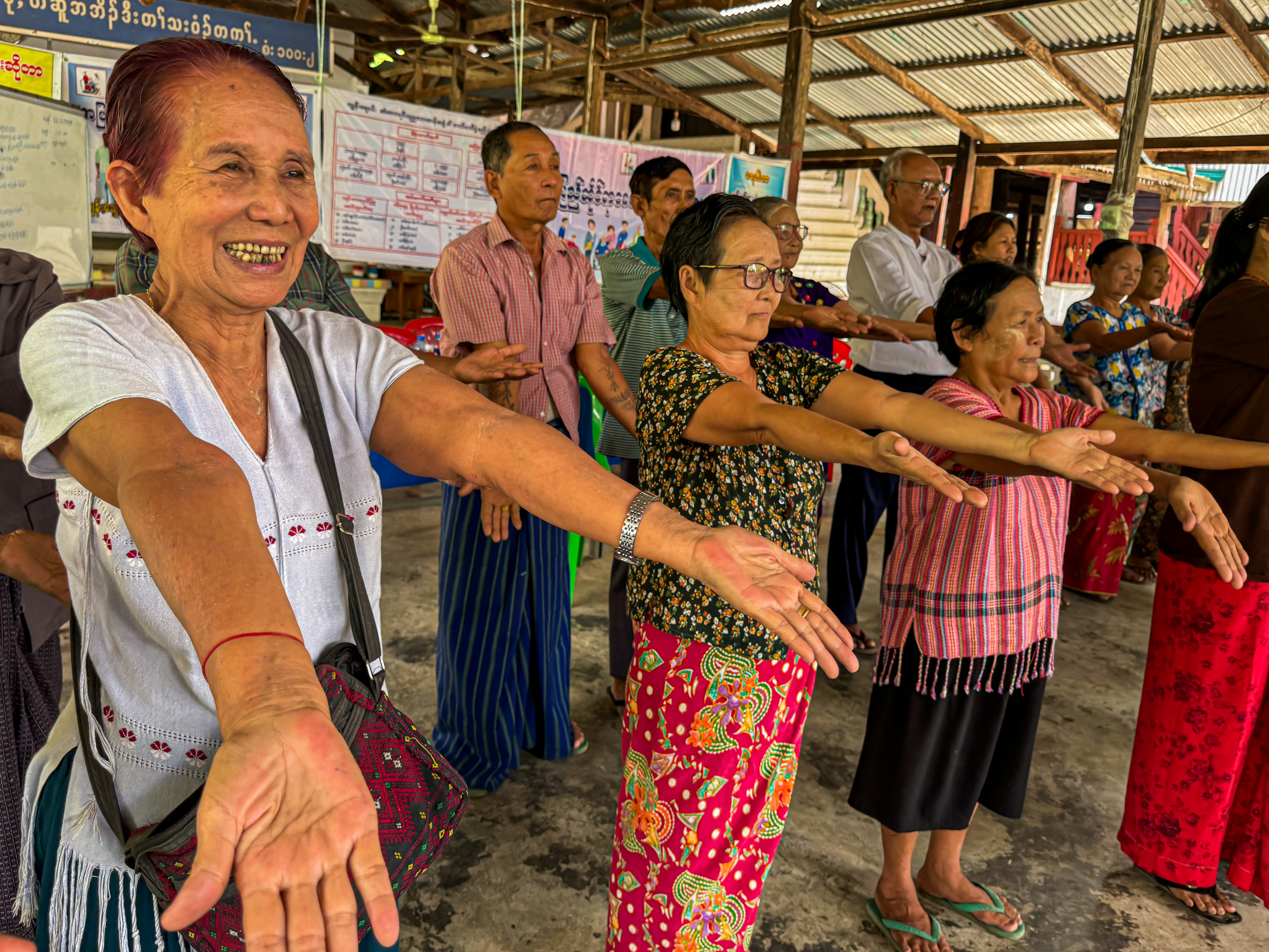
Figure 5: A group of older individuals engage in a guided psychosocial exercise session outdoors, led by a dedicated community volunteer. This gathering fosters both physical and emotional well-being, strengthening communal ties. Photo© UNFPA Myanmar
"Participating in these mental well-being exercises has a unifying effect on us and boosts our spirits significantly," shared an older participant. "During these sessions, we manage to set aside our anxieties and find happiness. By sharing our stories and struggles, we not only foster a sense of community but also feel more alive and empowered."
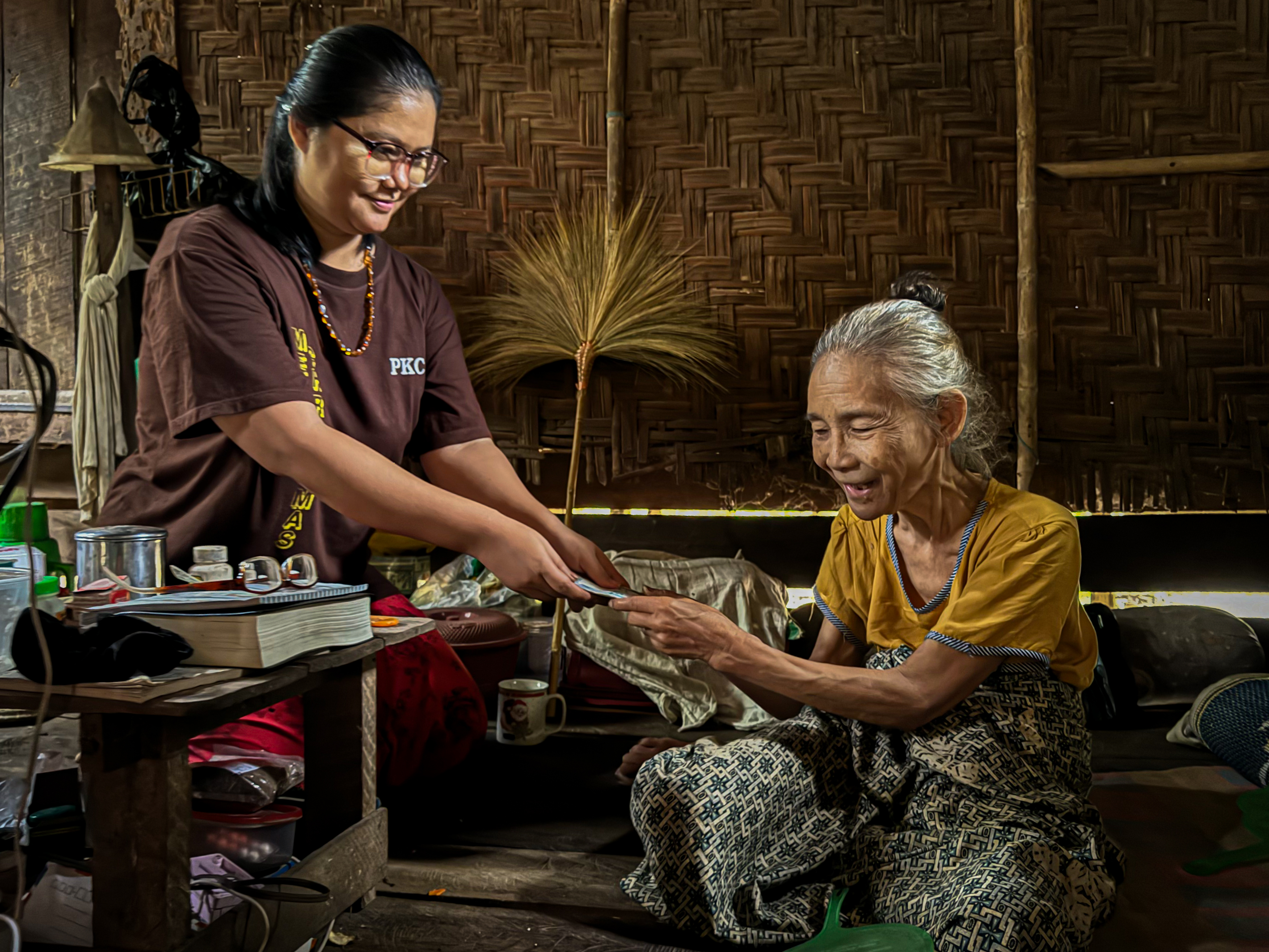
Figure 6: " A volunteer from Older People-Led Inclusive Self Help Group (ISHG) hands over cash assistance to an elder with disabilities, providing not just financial support but also affirming their dignity and inclusion within the community." Photo© UNFPA Myanmar
"Receiving this cash assistance has restored my independence, enabling me to make decisions for my own needs and well-being," stated an elderly person with disabilities. "It has transformed how I view myself, shifting from feeling like a burden to feeling valued and respected within my community."
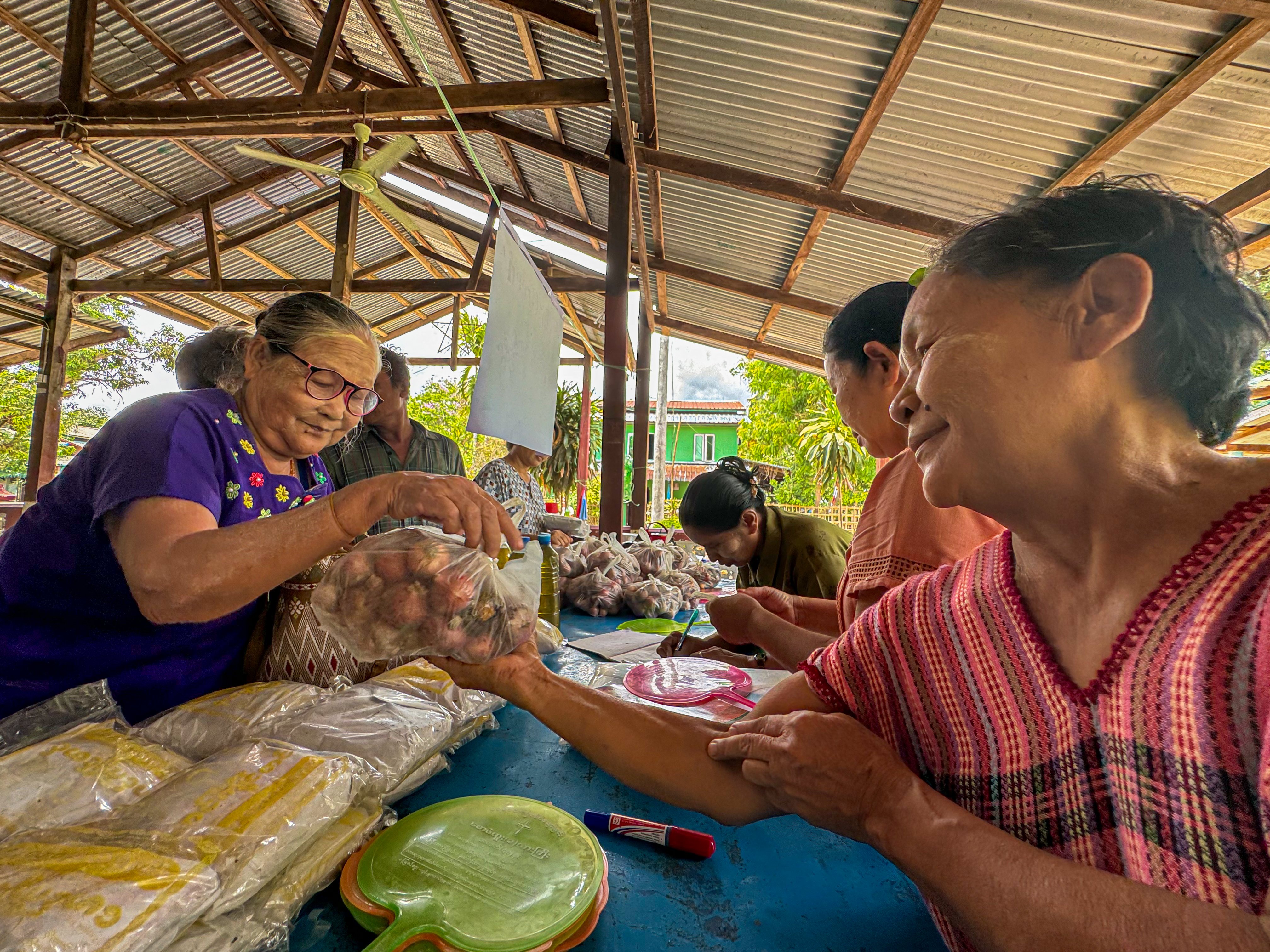
Figure 7: Local residents gather at a fundraising market, enthusiastically supporting the well-being of older people in the community. Photo© UNFPA Myanmar
The Inclusive Self-Help Groups (ISHG) under respective older people-led township network committee (TNC) for older people in the community exemplify resilience by spearheading diverse fundraising activities, including collecting monthly member fees, providing small loans for older people and organising fundraising markets where local household goods like rice, onions, and dishwashing liquid are sold. These initiatives not only generate necessary funds but also foster strong community bonds and sustainability, reinvesting into long-term community support for older people. This approach underscores the group's role as a pillar of resilience and sustainable development within the community.
"By pooling our resources, we create a sustainable support system that empowers our elders and strengthens community bonds. This approach ensures that we can continue to thrive independently, facing future challenges with resilience amidst the conflict." – Francisa, community older person and member of the township network committee.
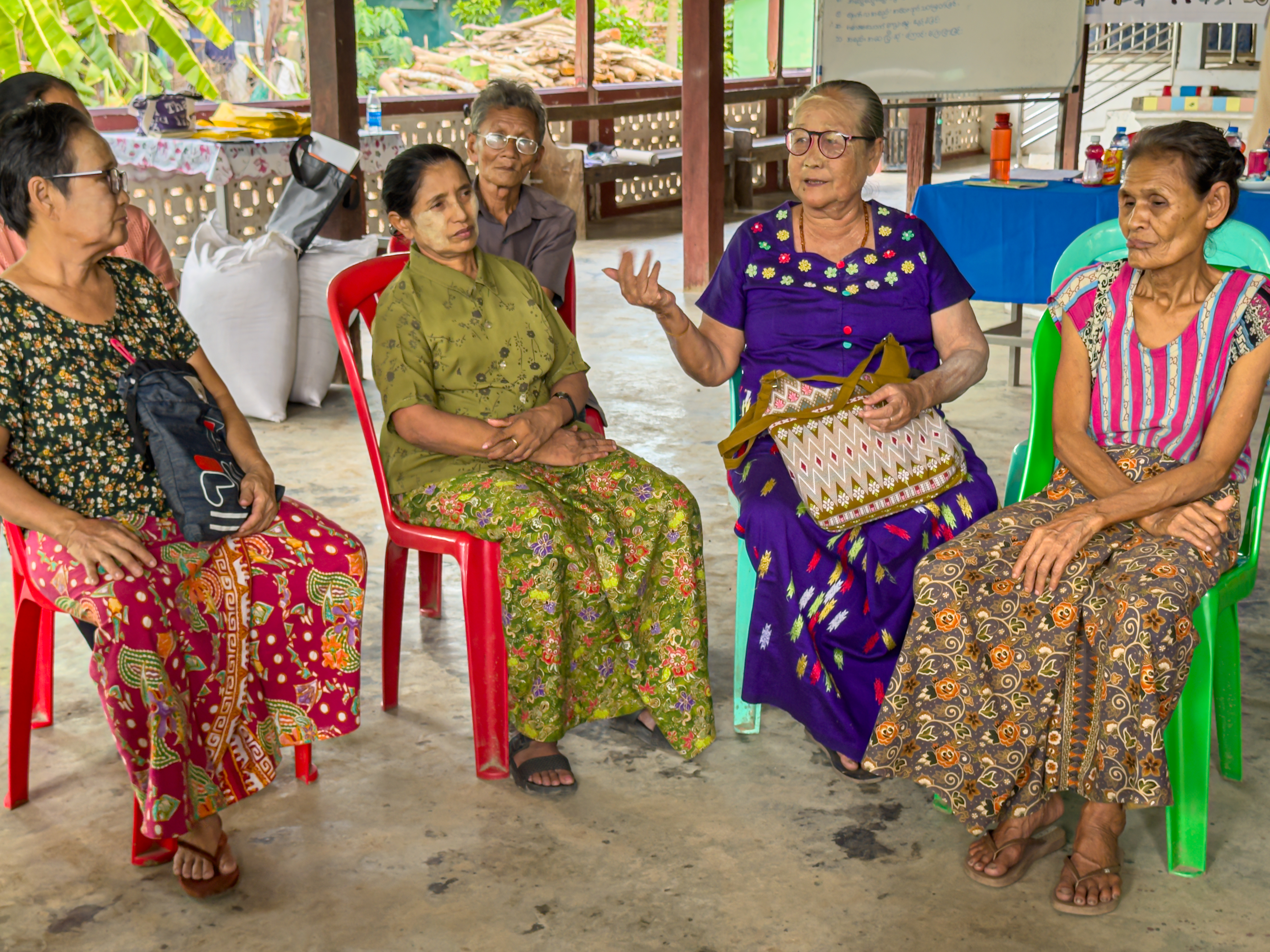
Figure 8: A gathering of older people, volunteers, and community leaders at the monthly meeting of ISHG sharing stories about how the program changed their lives. Photo© UNFPA Myanmar
"This support provided by UNFPA and the partner has not only helped us during challenging times but has brought our inclusive community together." - Elderly Community Leader.
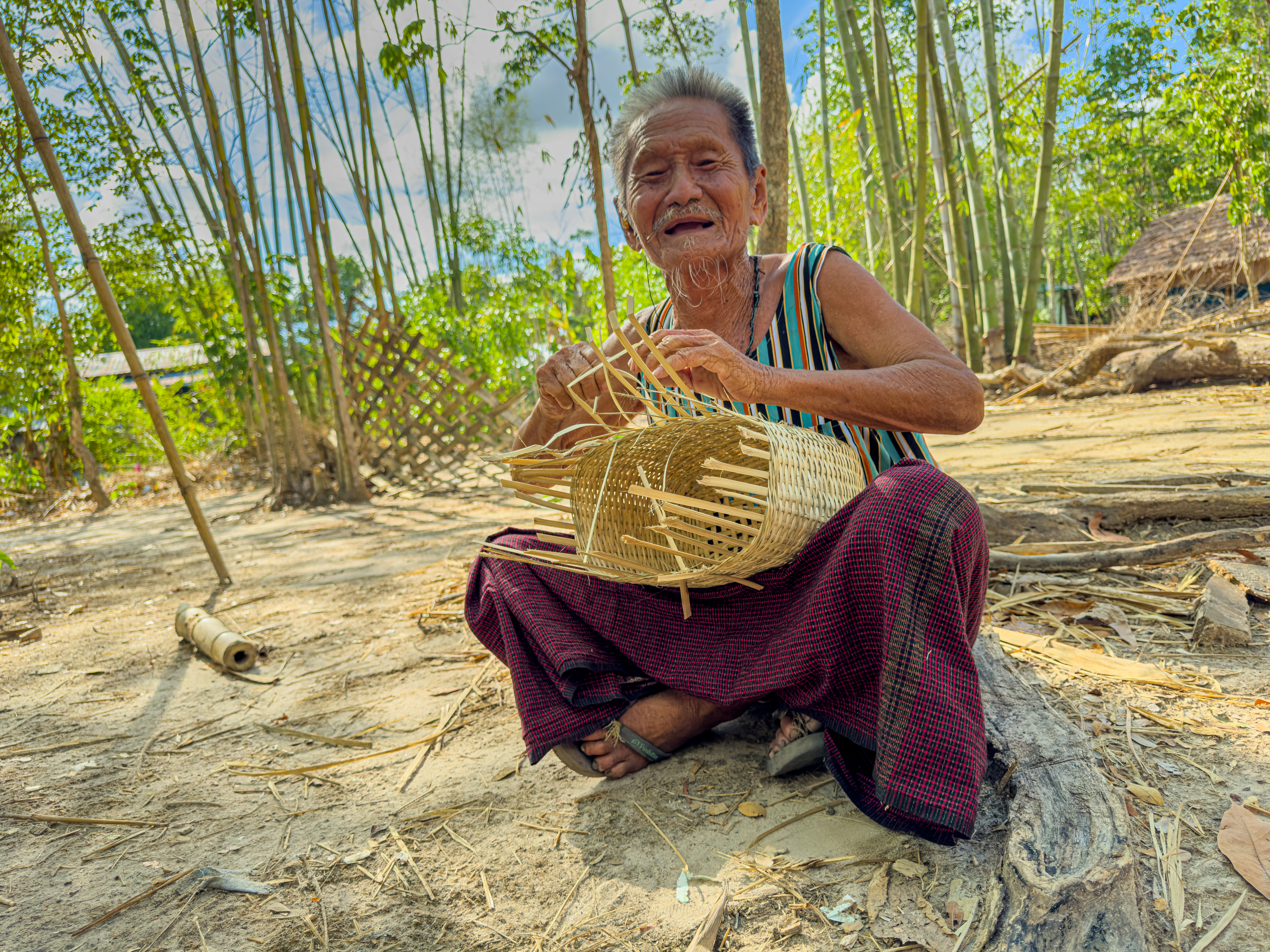
Figure 9: An older person weaves a bamboo basket, demonstrating the community’s enduring skills and cultural heritage. It not only supports local craftsmanship but also enhances his well-being. Photo© UNFPA Myanmar
"Thanks to the support and mental wellbeing exercises provided by our group, I've rediscovered my strength and enthusiasm for life,” remarked an elder from the community. “It's not just about living longer; it's about living well with dignity. Each day, I feel more inclusive and valued. It simply ensures that no one is left behind, giving us all a chance to thrive.”

